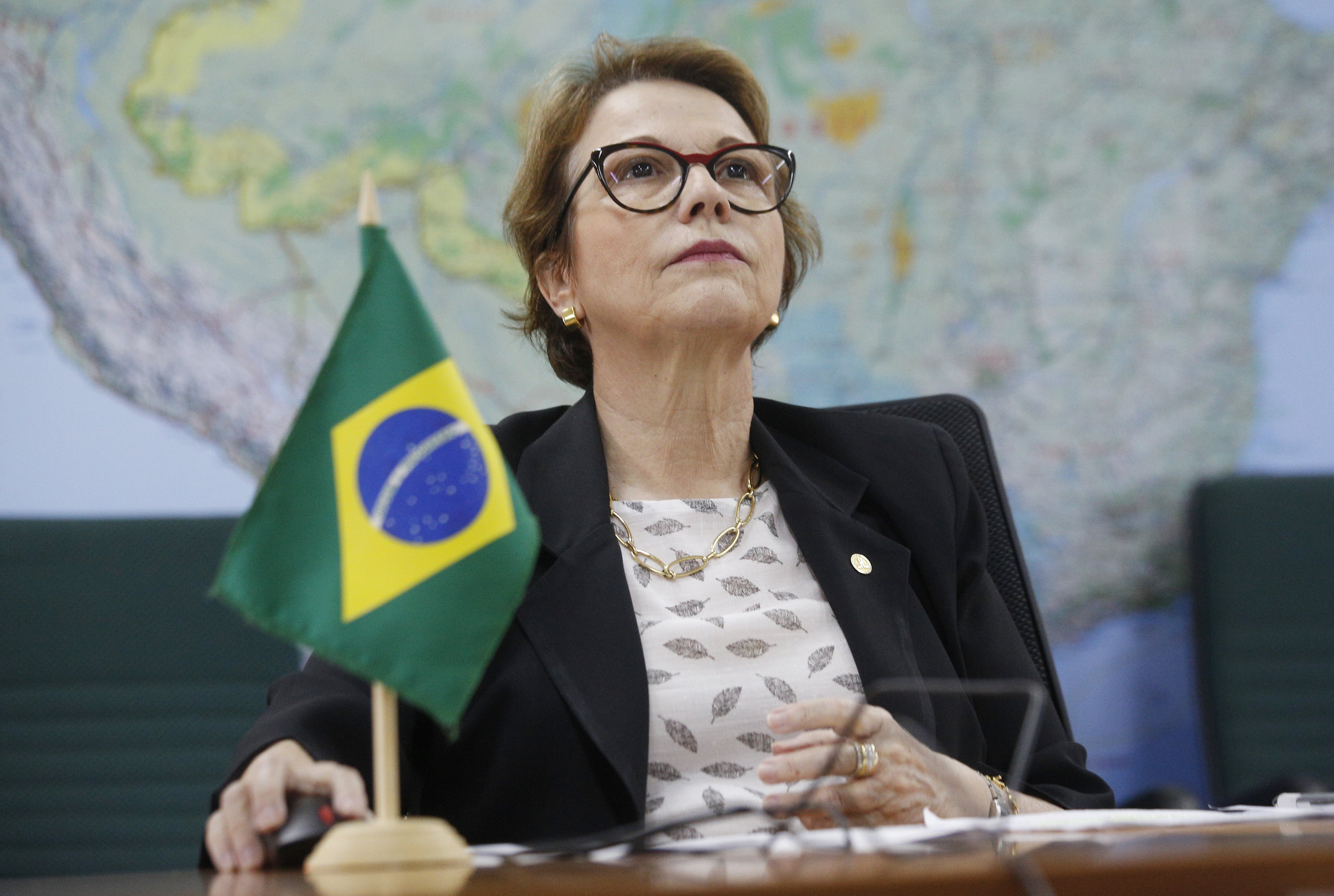RIO DE JANEIRO, BRAZIL – The Minister of Agriculture, Livestock, and Supply, Tereza Cristina, said on Wednesday, March 2, that Brazil has enough fertilizers for planting until October and that the government has been working since last year with alternatives to ensure supply for the sector, in case of shortages caused by the conflict between Russia and Ukraine.
“The corn harvest is already happening, so what was needed for fertilizers is already guaranteed. The summer harvest, which will be at the end of September, October, is a concern, but we also have confirmation from the private sector that there is sufficient stock to reach October,” said the minister, talking to journalists.
Brazil is already working on the search for new partners if the reception of fertilizers from Russia and Belarus decreases. According to the minister, her portfolio has a monitoring group that constantly talks with the industries, producers, logistics, and infrastructure parts. “We have to be calm at this moment and study all the scenarios that can happen,” she said.

In addition, the Brazilian Agricultural Research Corporation (Embrapa) is studying alternatives to increase the efficiency of planting with less use of fertilizers. Strategies are also being used to promote and finance the increased production of bio-inputs, organo-mineral fertilizers, nanotechnology, and digital agriculture. “Brazilian agriculture is strong, it will continue to be strong, and we have to provide alternatives for it to continue working,” said the minister.
In the next few days, the government should launch the National Fertilizer Plan, elaborated since last year in partnership with other ministries and the private sector, to reduce Brazil’s dependence on fertilizer imports. “Brazil needs to treat this issue as national security and food security. So this plan, which we made a year ago, without foreseeing any of this, was what the government thought we should have so that Brazil, which is an agro-food power, would have a plan of at least 50% to 60% of own-production of its fertilizers,” said the minister about the plan to be presented later this month.
IMPORTATION
Currently, Brazil is the fourth global consumer of fertilizers, responsible for about 8% of this volume, and is the world’s largest importer. Brazil imports about 80% of all the fertilizer used in national agricultural production. In the case of potash, the imported percentage is about 95%. Russia is responsible for supplying about 25% of the fertilizers to Brazil.
Russia is the world’s largest exporter of fertilizer, with almost US$7 billion exported in 2020. It is also the biggest supplier to Brazil, with US$1.8 billion of the US$8 billion we import (2020).
Regarding potassium fertilizers, Russia is responsible for about 20% of global production and is the origin of 28% of Brazilian imports. For nitrogenous fertilizers, the Eurasian country is the second-largest global producer. As a supplier to Brazil, Russia participates with 21% of nitrogenous fertilizers. In the specific case of ammonium nitrate, the country is practically the only supplier to Brazil, according to data from Brazil’s National Supply Company (Conab).
BELARUS
Exports of fertilizers from Belarus to Brazil have been suspended since the beginning of February because of the closure of Lithuanian ports for the flow of this product. Since Brazil learned that Belarus would suffer economic sanctions from the United States and the European Union, the government has been looking for alternatives to supply the sector’s demand.
Minister Tereza Cristina was in Russia last year and in Iran in February this year, negotiating the increase of fertilizer exports to Brazil. The Iranian state-owned National Petrochemical Company (NPC) stated that Iran could triple urea exports to Brazil, reaching 2 million tons per year. On March 12, the minister is scheduled to travel to Canada to negotiate increased potash exports to Brazil.

